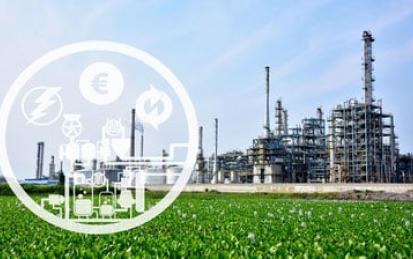

Our Courses

Sustainable Energy: Design a Renewable Future
Learn how to make the transition to 100% renewable energy from wind, solar and biomass for electricity, heat and fuels for a sustainable future.
-
Course by

-
 27
27
-
 English
English

From Fossil Resources to Biomass: A Chemistry Perspective
Explore how to create a sustainable future by moving away from dependence on fossil resources to biomass resources for the production of food, chemicals and energy-carriers. Discover how to use microorganisms and catalysts to create biobased products.
-
Course by

-
 Self Paced
Self Paced
-
 56
56
-
 English
English

From Fossil Resources to Biomass: A Business and Economics Perspective
Learn about the basic consumer science, business, logistics, supply chain, and economic principles that are essential for a successful transition from fossil resources to renewable biomass resources in a biobased economy.
-
Course by

-
 Self Paced
Self Paced
-
 18
18
-
 English
English

Biorefinery: From Biomass to Building Blocks of Biobased Products
Learn how to design an effective biorefinery to obtain valuable components from various biobased feedstocks such as plants, organisms and waste streams.
-
Course by

-
 Self Paced
Self Paced
-
 21
21
-
 English
English

Synthetic Aperture Radar: Ecosystems
This online course will introduce the contributions of Synthetic Aperture Radar (SAR) remote sensing to the monitoring of Earth’s ecosystems. Learn how the weather-independence of SAR combined with its ability to penetrate into vegetation canopies make SAR an excellent information source to characterize vegetation structure, measure above-ground biomass, and analyze the change of vegetation long term and throughout the seasons.
-
Course by

-
 Self Paced
Self Paced
-
 4
4
-
 English
English

Energy and Environment
This course deals with both renewable and non-renewable energy. By applying scientific principles and considering real-world examples, you will examine: 1. Non-renewable fossil fuels with a focus on coal, petroleum and natural gas and the benefits and consequences of using each. 2. Renewable fuels such as wind and solar and identify that even renewable “green” energy sources have impacts as well as benefits. 3. Biodiversity and global change, which are the integrating units of environmental science. Additionally, you will explore answers to the following questions: 1.
-
Course by

-
 Self Paced
Self Paced
-
 23 hours
23 hours
-
 English
English

Introduction to Industrial Bioprocess Development
Bioprocesses make use of microorganisms, animal cells, or enzymes to manufacture new products or complete a chemical transformation. Since ancient days, humans have been using microorganisms to transform biological materials for the production of alcoholic beverages and other fermented foods. Since then, bioprocesses have been developed for an enormous range of commercial products, from relatively cheap products such as organic solvents and industrial alcohol, to expensive specialty chemicals such as therapeutic proteins, antibiotics, and vaccines.
-
Course by

-
 Self Paced
Self Paced
-
 15 hours
15 hours
-
 English
English

Aeroecology: Exploring Biodiversity with Radar
Learn how aeroecology, a discipline that studies airborne life forms, has been revolutionised with the use of radar with this unique course. This course is designed to help scientists, researchers as well as ecology enthusiasts to develop skills in using radar to explore biodiversity. You will explore the origins and evolution of radar from a military technology to a powerful tool with multiple scientific applications, including aeroecology.
-
Course by

-
 Self Paced
Self Paced
-
 10 hours
10 hours
-
 English
English

Ash-Related Operational Challenges in Energy Utilization of Sustainable Fuels
The basic idea behind this MOOC, is to present recent data on fuel characterization, slagging, fouling, corrosion, and trace element transformations, in a course that can be readily provided for students and industry people. This ensures understanding and application of the research, and provides the students and industry with a forum for discussion of the very latest research results, as well as feedback from industry to the research group at DTU, on important new research subjects in the field. The specific aim of the MOOC, is that students will be able to; Explain basic physical and chemic
-
Course by

-
 Self Paced
Self Paced
-
 69 hours
69 hours
-
 English
English

Planning for Climate Change in African Cities
Climate change poses a threat to economic growth and long-term prosperity of many countries around the world. Africa is not an exception, considering the actual and potential impacts of climate change and climate variability that will threaten its vulnerable sectors and human populations. African countries are projected to experience changing rainfall patterns, rising sea levels, and higher temperatures that will affect food security, agricultural production, water availability, and public health, among others.
-
Course by

-
 Self Paced
Self Paced
-
 22 hours
22 hours
-
 English
English



